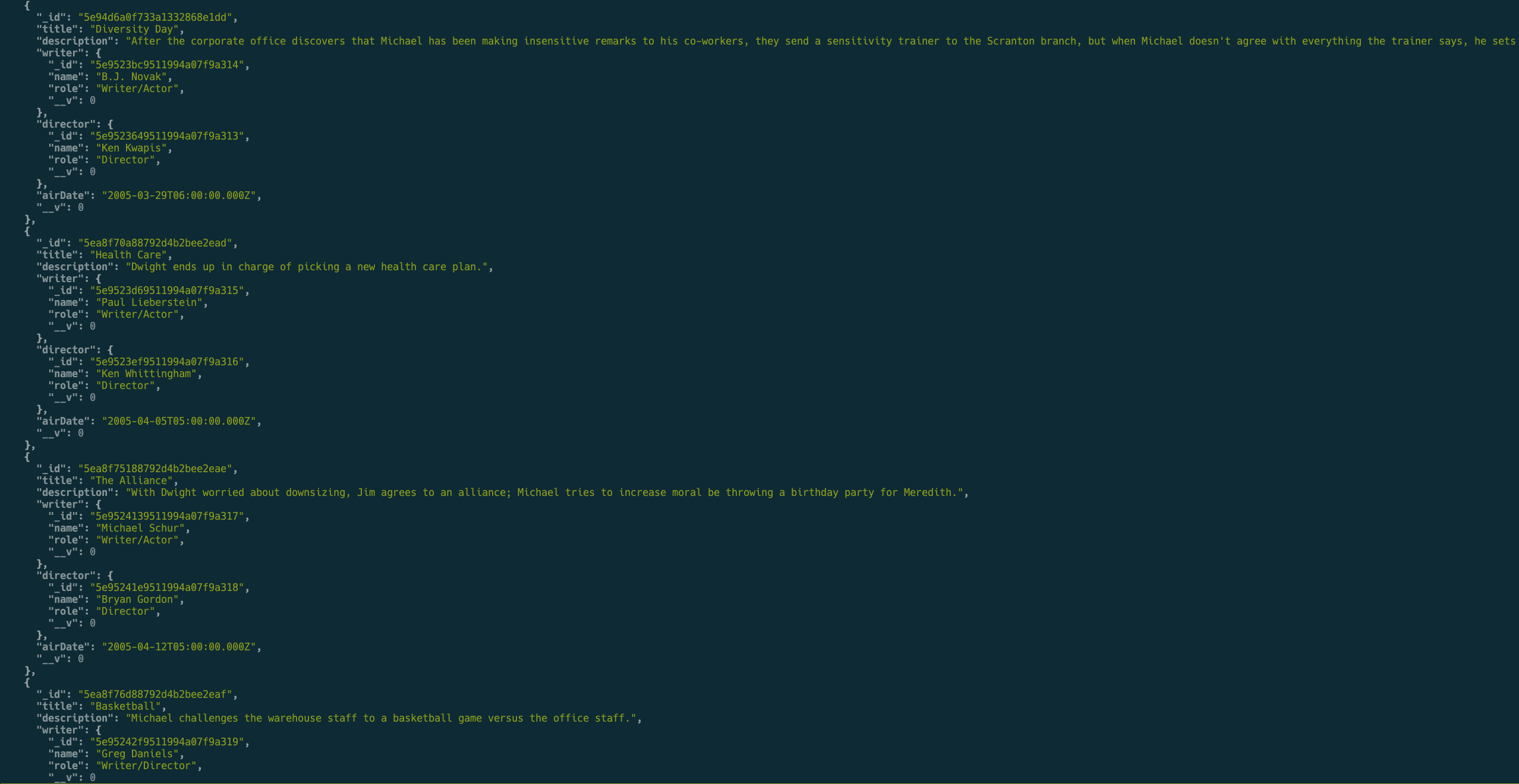
I little while ago, I stumbled upon someone using jq in a coding video, and I was blown away. Something so simple, yet so game-changing. If you’ve ever struggled reading long, complex JSON strings from API responses via curl or log files, then you might benefit from installing jq. Installation instructions are available for most operating systems and distros.
The most basic usage of jq is to make JSON output pretty, but there are plenty of other progressively-more-complex ways you can use the command to reformat and restructure your JSON data:
Examples
Make Things Pretty
Here’s a basic way to make JSON output from an API more readable.
INPUT
curl 'https://www.officeapi.dev/api/characters' | jq
OUTPUT
{
"data": [
{
"_id": "5e93b4a43af44260882e33b0",
"firstname": "Michael",
"lastname": "Scott",
"__v": 0
},
{
"_id": "5e93b4f03af44260882e33b1",
"firstname": "Jim",
"lastname": "Halpert",
"__v": 0
},
{
"_id": "5e93b4fa3af44260882e33b2",
"firstname": "Dwight",
"lastname": "Schrute",
"__v": 0
},
{
"_id": "5e93b50a3af44260882e33b3",
"firstname": "Pam",
"lastname": "Beesly",
"__v": 0
},
{
"_id": "5e93b5183af44260882e33b4",
"firstname": "Ryan",
"lastname": "Howard",
"__v": 0
},
...
]
}
Pluck Just What You Need
The syntax for selecting data from a JSON object should look pretty similar if you are used to dealing with JSON using Javascript. In this example, we can pass in some formatting options as an argument to select firstname and lastname attributes as a new fullname attribute. Pretty freaking cool, right?
INPUT
curl 'https://www.officeapi.dev/api/characters' | jq '.data[] | {fullname: "\(.firstname) \(.lastname)"}'
OUTPUT
{
"fullname": "Michael Scott"
}
{
"fullname": "Jim Halpert"
}
{
"fullname": "Dwight Schrute"
}
{
"fullname": "Pam Beesly"
}
{
"fullname": "Ryan Howard"
}
...
So Much More
There are a million other examples and a full manual for methods and formatting options in the jq tutorial and jq manual!
About the Author
Matt Watson is the Chief Technologist at Development Partners, a dev shop based in Fort Lauderdale, Florida.